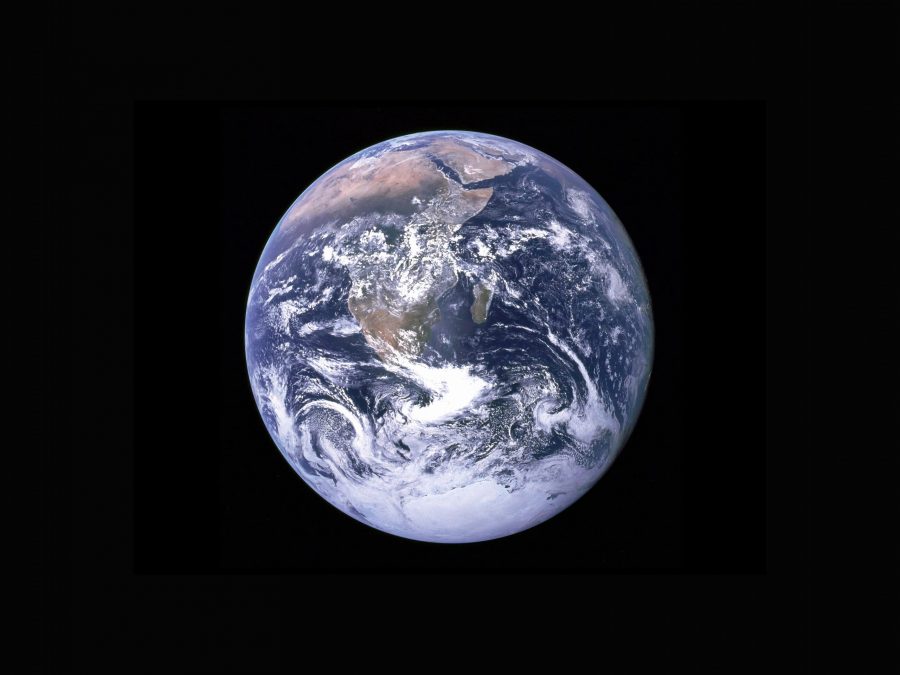Let us toast to the United Nations, which had the happy idea of proclaiming the “years” of the mountains, of water, of forests?
And let us salute Saint Francis, prince of ecologists, who loved all created beings fraternally and gave the earth the affectionate name of “mother” of ours.
Creatures are indeed our companions, relatives and “sisters”, since their existence and ours are mutually implicated. This complicity leads us to act as stewards of nature and not as absolute lords; unselfishly and not hoarding; without a destructive spirit, but with respect and awe for mountains and rivers, forests and seas, animals and plants.
And does not the earth deserve the title of “mother”? She nurtures and nourishes all creatures with her intense love and successive fecundity. Our survival, sustenance and life depend on her. But the wear and tear caused by over-consumption is destroying and exhausting her. I fear that its womb will one day no longer be able to unravel into cataracts of being and will become exhausted and infertile, desertified and unproductive for future generations.
Throughout the ages, the relationship with nature was inspired by two biblical texts, the first being God’s command to man and woman: “Fill the earth and subdue it”. This phrase sometimes justified a kind of aggressive domination of nature. The dominion of creation became tyranny over creatures.
The second text, fortunately, led us to review attitudes and procedures: “God put man in the garden to take care of him”. For centuries, the cultivation of fields and the breeding of animals, in the pursuit of the conservation and beautification of nature, were seen as a new creation, in some cases transforming deserts and wastelands into forests, orchards and gardens.
With the industrial revolution the scenario worsened. Population growth and, above all, increased energy consumption triggered unlimited exploitation of natural resources and pollution of the environment. The alarm bells rang loudly: the depletion of nature and the pollution of water and air reached dangerous, if not irreversible, levels. The effects of global warming, for example, are more devastating than the terrorist attack on New York or the bombs dropped on Hiroshima and Nagasaki.
At the same time, it seems that the inhabitants of developed countries are changing species: from intelligent and free beings to mere animals of production and consumption. They are oriented from childhood to become spendthrifts. Advertising is multiplying their desires and segregating new needs.
And, more seriously, the enjoyment of goods is criminally unequal between rich and poor countries. In many parts of the world there is hunger, not because of a lack of resources but because they are poorly distributed. The advance of science and technology, and the mastery of the universe, has not produced well-being for all. The earth has not become a better resting place, nor the ocean wave more welcoming and cleaner. Some people live too well, because others live too badly. Some swim in the superfluous, because others lack the necessary. If some rich people do not live more simply, many poor people will not be able to simply survive.
Perhaps because of all this, the number of men and women dreaming of a new wisdom is growing. A new way of life in freedom from power and money. A choice for simplicity in food, clothing, means of transport, work tools, entertainment and leisure. A new awareness of the “spirit of matter” of which Teilhard de Chardin spoke: “when man destroys something, he destroys himself, and when he creates something, he develops himself”. Smelling the earth, feeling the pulsation of the humus, he becomes more human.
The “consumer man”, slave of fictitious needs, unsatisfied accumulator, is opposed to the “servant man” who aspires to “be” more fraternal and in solidarity. The art of sobriety fits perfectly with beauty, truth and joie de vivre.
This is the way: to treat as members of the “family”: the “brother” air and the “brother” river, the “brother” ox and the “brother” fish; to fraternise respectfully with the “brother” trees and even with the “sister” beasts; to live with sobriety, as a sign of communion – loving and compassionate – with the earth, our “mother” and our bosom.
Above all, however, it is important to look with new love at our brothers and sisters “of blood and soul” who are our fellow human beings. Ecology is in fashion. The lack of fashion is to put universal love in fashion.
Abílio Pina Ribeiro, cmf
(PHOTO: NASA)






